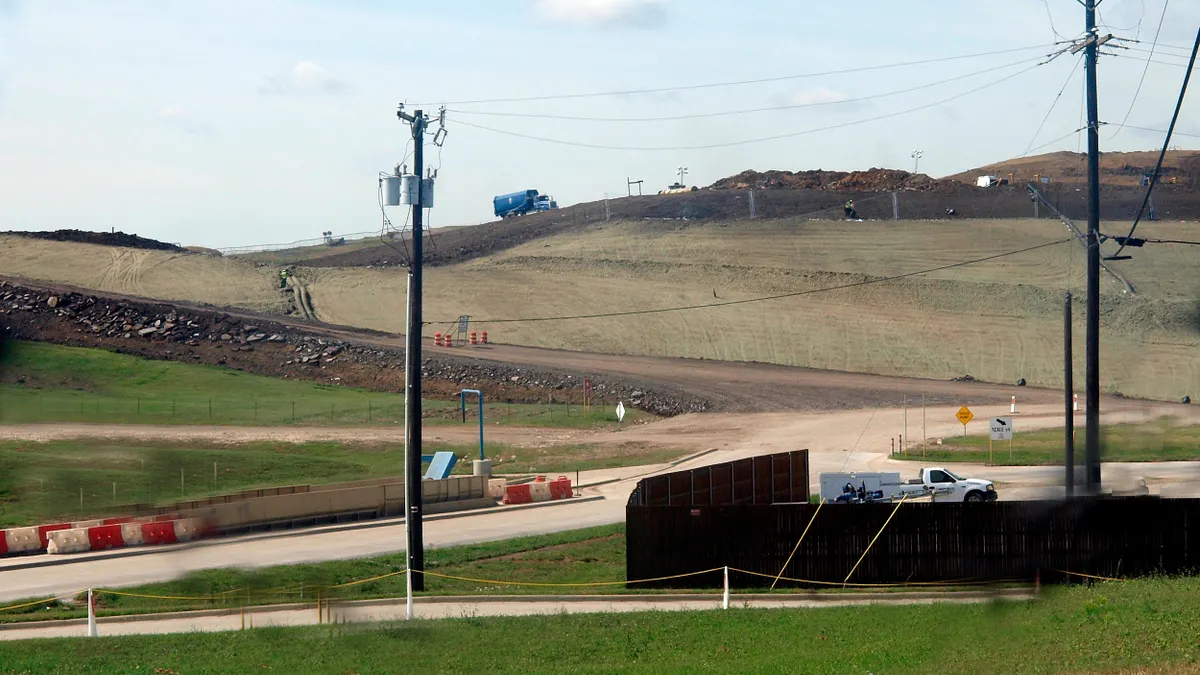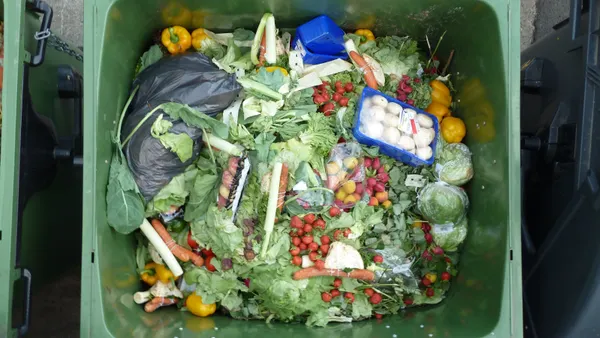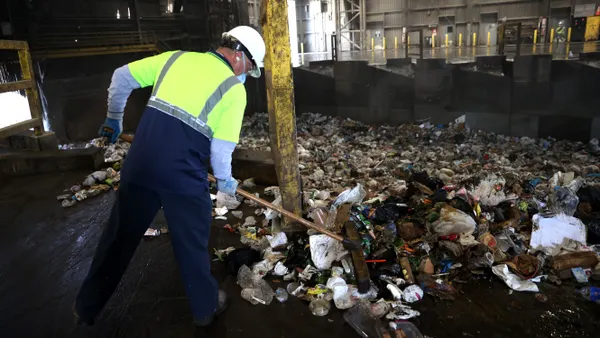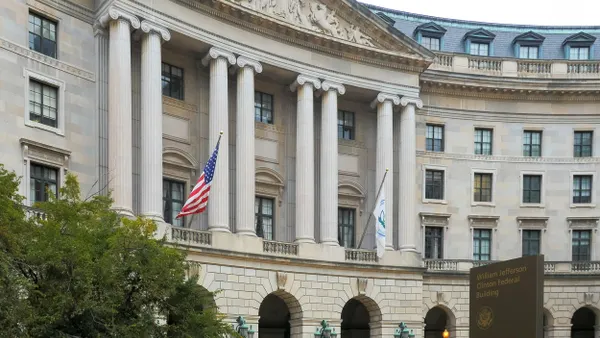Dive Brief:
- The Colorado Air Quality Control Commission opted on Friday not to take a final vote on Regulation 31, a package of rules that would implement sweeping changes to landfill rules. Commissioners said they needed more time to understand what potential effects the regulation would have since this is the first time the state has adopted its own rules that are more stringent than federal law.
- As written, Colorado's proposal would set some of the strictest landfill rules in the nation. The state would set a methane generation threshold past which landfills must install gas collection and control systems, following similar requirements set in Oregon and Maryland. It would also add requirements around cover material and emissions monitoring, among other changes.
- A coalition of industry voices had asked the commission to slow down its rulemaking process in July, saying they didn't have enough time to offer their thoughts on the final proposal. They still cannot provide additional comment on the rule, but commissioners will have until their December meeting to review material that's already been submitted. They could finalize the regulation at that time.
Dive Insight:
Colorado is one of two states actively developing updated regulations for landfills, along with California. The latter state had previously jumped out ahead of federal requirements with its Landfill Methane Regulation in 2011, but regulators there have been gearing up for an update over the past few years.
Several states have implemented stricter landfill rules than federal law requires as the U.S. EPA has been slow to update its own standards. The agency last tightened requirements for landfills in 2021, but that was an enforcement action taken by the Biden administration that implemented standards first outlined in 2016. The EPA most recently said it would update its landfill regulations in 2025, though under President Donald Trump the agency has yet to release a proposed rule.
Environmental groups have urged regulators at all levels to enact stricter rules on landfills, emphasizing the facilities’ pollution as both a public health threat and a contributor to climate change. Landfills are the third largest source of methane emissions in the U.S. and are responsible for about three-quarters of the waste sector’s emissions, according to EPA data.
Colorado’s GHG Roadmap 2.0, which urged action on landfill methane emissions, noted that the state’s landfills emitted a combined 1.3 million metric tons of carbon dioxide equivalent annually. The state has a series of greenhouse gas emission reduction goals based on a 2005 baseline, including a 50% reduction by 2030 and net zero by 2050.
Regulation 31 would implement a range of requirements to catch methane more quickly and prevent its release. Landfill operators would need to install gas collection and control systems earlier in a landfill’s life, both based on waste-in-place thresholds and emissions rate. They would also need to place wells to collect gas from newly placed waste sooner than previously required.
For monitoring, the proposal includes tighter walking patterns for inspectors conducting surface emissions monitoring, the approval of drones as monitoring equipment and a new program that allows third-parties to use aerial technology to monitor landfills for leaks.
Commissioners received multiple days worth of testimony on the proposal, including from environmental groups that emphasized the regulation’s potential public health benefits, as well as small cities and counties that say they lack the budget to implement the proposed requirements.
The commission will next deliberate the regulation at its regular meeting, running Dec. 17 through Dec. 19.













